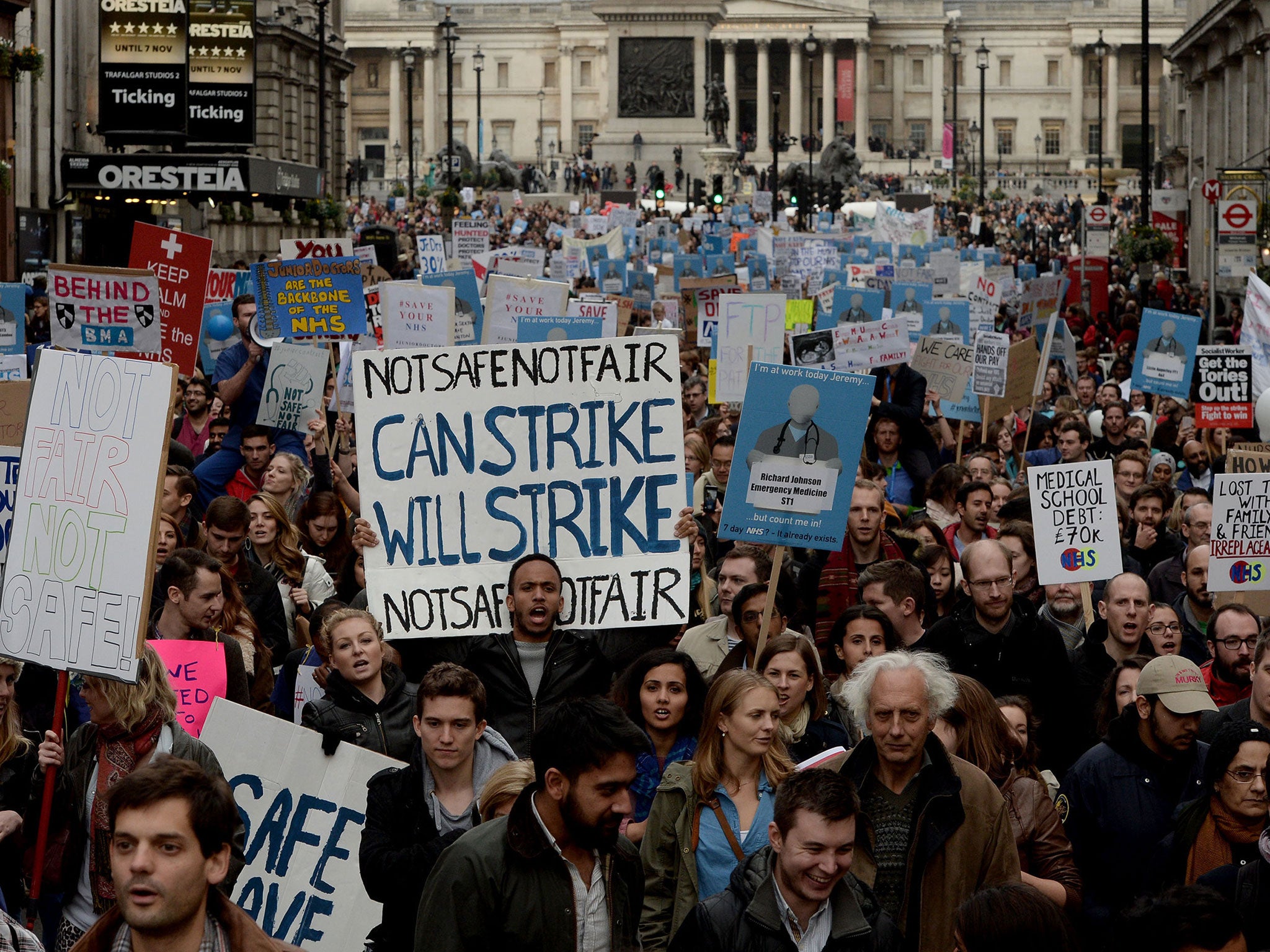Junior doctors' strike could last the whole year, campaigners warn
Leading figure in campaign against new contract says colleagues are prepared for intermittent action lasting up to 2017

Strike action by junior doctors could continue for the entire year, campaigners have warned as hopes faded that last-ditch talks could avert the most significant industrial action in the NHS in decades.
Although the British Medical Association said it was still committed to talks, which are due to recommence on Monday, disagreements remain between the Government and doctors. Department of Health sources and many junior doctors now expect a strike to be held as soon as next week.
But in a potential escalation of the already bitter dispute between medics and the Conservative Government, a leading figure in the campaign against the new contract told The Independent that colleagues were prepared for intermittent strike action lasting up to 2017.
“We’re in it for the long haul,” the source said. “This is not a plan for just one day next week, but for a period of industrial action lasting for months. It will last into the summer and, if necessary, throughout the year.”
If junior doctors’ demands were not met, then the severity of strikes would also escalate, the source said.
Doctors are currently expected to walk out from all but emergency work on the first strike day, followed by the withdrawal of all junior doctor labour on subsequent days of action. The length of strike days could be prolonged, the longer the Government failed to meet junior doctors’ demands for a contract they considered safe for patients and fair to the workforce, the source said. Such prolonged industrial unrest would mirror the last major NHS strike action in 1975, when there was intermittent action for four months and a further strike later in the year.
The threat reflects growing discontent among junior doctors, who increasingly view the dispute with the Government as a battle for the future of the NHS. The Government has offered no extra funding for junior doctors’ pay to back up the new contract, but expects more junior doctors to be available at weekends to deliver its plans for enhanced services in hospitals.
The Health Secretary Jeremy Hunt has said that no junior doctor working less than 56 hours will see their pay cut – and said no doctor should have to work longer than those hours under the new contract.
However, Government sources have reportedly said they are resigned to a strike taking place as soon as next week. Industrial action, under which many of England’s 55,000 junior doctors would walk out of all but emergency care, was narrowly averted before Christmas.
A Department of Health spokesperson said: “As we have consistently said, talks are always better than strikes. We are prepared to talk about anything within the pay envelope, as long as we improve patient safety by moving towards a seven-day NHS.”
Subscribe to Independent Premium to bookmark this article
Want to bookmark your favourite articles and stories to read or reference later? Start your Independent Premium subscription today.

Join our commenting forum
Join thought-provoking conversations, follow other Independent readers and see their replies